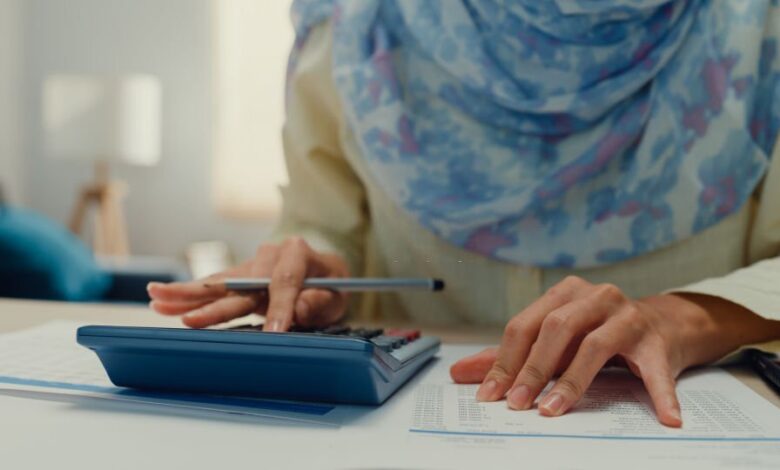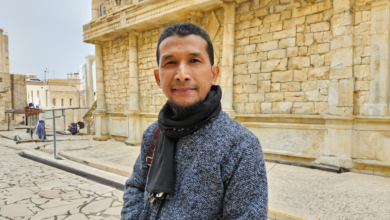Dozens of Years Debt Pay the Past or Present Value of Money?

DDHK.ORG - Dozens of Years Debt Pay the Past or Present Value of Money?
Peace, mercy and blessings of God
Ustadz, please enlighten me.
Person A has died a dozen years ago and there is a debt to person B. Then now, person C appears with a fortune to pay off the debt of the late A to person B.
The question is, is the debt calculated for the value of A's lifetime or today?
Thank you, Ustadz.
Greetings, Fulanah
ANSWER:
ليكم السلام الله ات
Bismillah... If someone dies while still in debt, it is the heirs who are obliged to pay off the debt. Even the settlement of debts and or the fulfillment of wills must take precedence before the distribution of inheritance.
Allah Subhanahu wata'ala says:
اۤ {سورة النساء: }
"After (fulfillment of) the will they made or (and after paying) the debt." {Surat an-Nisa': 12}
But if there are other people who are not heirs but want to pay off the debt of the deceased, then that person is truly a noble human being because he frees someone from debt.
But the problem is if someone's debt has not been paid for a very long time since the deceased/ah borrowed, or up to a dozen years, or even the person whose debt has died. Then, is paying the debt the same as the money at that time or must it be adjusted to the value of money at the time of paying off the debt? Considering money can experience inflation (decreased nominal value) from time to time.
If the debt is in the form of dinars (gold coins) or dirhams (silver coins), then the repayment if it is with dinars or similar dirhams, then that is definitely the value and can avoid usury considering the intrinsic value (the value attached to the object) tends to be stable from time to time.
However, if debts other than dinars and dirhams are like paper money in modern times, then their value tends to experience inflation from time to time. So if the repayment of long-standing debts remains at the nominal value first, of course this is considered unfair to the party providing the debt.
Indeed, there are scholars who oblige the payment of money debts other than dinars and dirhams must be adjusted to the value when paying off debt, either up or down. He was Abu Yusuf, a disciple of Imam Abu Hanifa.
For example, person A borrows Rp. 100.000 from person B in 2006. Then person A returns his debt to person B of Rp. 100.000 in 2022, of course the nominal value of Rp. 100.000 in 2022 is smaller than in 2006.
If the inflation that occurs is very large, then paying the debt must be adjusted to the nominal at the time of debt repayment. However, if the inflation is only a little, then the repayment may still be in accordance with the nominal when owed.
However, repairing debt repayments is highly recommended. This means that debts must be paid immediately if they are able or provide more unconditional value at the beginning of the debt. Because if there are conditions at the beginning of the debt it is not allowed because it includes usury. As the Prophet sallallaahu 'alaihi wasallam said:
ارَكُمْ اءً (متفق ليه)
"Indeed, the best of you are those who do good in paying debts." (Narrated by Bukhari & Muslim).
Wallâhu a'lam bish-showâb.
Hope it works!
Peace, mercy and blessings of God
...
(Answered by: Ustadz Very Setiyawan, Lc., S.Pd.I., MH)
#Friends of Migrants want to consult about Islamic religious issues and life issues? Come on, submit the question via WhatsApp message to number +852 52982419. [DDHKNews]



